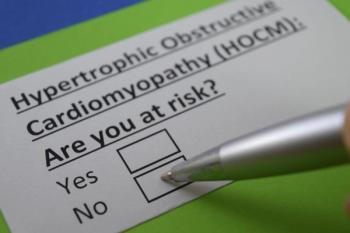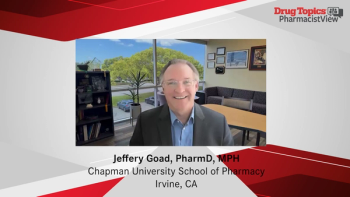
Fixed-Dose Combination Polypill Reduces Primary Cardiovascular Disease Risk
“This first-generation polypill is not magic, but it would be clinically worthwhile.”
A daily fixed-dose combination polypill with 4 common cardiovascular medications can reduce the risk of primary cardiovascular disease by 21%, according to new research. Adding daily low-dose aspirin reduces primary cardiovascular risk by 31%.
The polypill used in the study cost about $0.50 per dose per day, said Salim Yusuf, MD, DPhil, professor of medicine, clinical epidemiology, and biostatistics and director of the McMaster University Population Health Research Institute in Hamilton, Ontario, Canada. He said large-scale production could cut cost to as little as $0.10 per dose per day.
“If even half the people who were eligible took this polypill-aspirin combination, we could prevent 3 to 5 million people from getting a heart attack or stroke, or dying from heart disease or stroke every year,” Yusuf said. “Polypill could be used very effectively to reduce the impact of cardiovascular disease in every part of the world, rich or poor.”
The International Polycap Study-3 (TIPS-3) is the largest trial ever of a quadruple fixed-dose combination to prevent cardiovascular disease. The polypill includes thiazide 25 mg, atenolol 100 mg, ramipril 10 mg, and simvastatin 40 mg taken once daily.
The trial compared polypill, 75 mg aspirin, and polypill plus aspirin with placebo in 5713 participants across 9 countries for 4.6 years. The trial was planned to run for 10 years with 7000 participants, but supply problems and the coronavirus disease 2019 (COVID-19) pandemic cut the program short.
“You see these people in your clinic or pharmacy every day,” said Prem Pais, MD, professor of medicine at St. John's Research Institute in Bangalore, India.
“They were all middle-aged, men 50 or older, women 55 and older. They all had at least 1 risk factor for cardiovascular disease—overweight, high blood pressure, elevated cholesterol, elevated glucose or diabetes, smokers. But no one had any known cardiovascular disease. This was about primary prevention, reducing the risk of that first cardiovascular event. ”
At least a half-dozen companies sell polypills outside the US, Pais noted. But they are not widely used because there have been no large, international studies showing that they actually reduce heart attack, stroke, and death. Prior studies looked at surrogate markers such as blood pressure, not clinical events.
“I think this will change our practice,” Yusuf said.
Results of TIPS-3 were presented at the American Heart Association Scientific Sessions and published simultaneously in the New England Journal of Medicine.
The trial was complicated by logistical delays in manufacturing and distribution as well as access interruptions from COVID-19 closures. Pais noted that nonadherence was high, 43% by the end of the study, but only 5% of nonadherence was due to adverse effects.
There was no difference in gastrointestinal bleeding between the aspirin group and placebo and there were more serious adverse events in the placebo group than in the polypill group.
The primary results of the trial that made headlines were based on an intent-to-treat analysis, which includes everyone enrolled in the trial, even if they could not get the drug or placebo. A subanalysis of participants who had less than a 30-day interruption in supply showed 45% lower risk for primary cardiovascular events with the polypill plus aspirin versus placebo.
“This first-generation polypill is not magic, but it would be clinically worthwhile,” Yusuf said. “In the future, there will be polypills with greater cholesterol reduction, greater reductions of blood pressure. And my guess is that they will have a greater effect on reducing first cardiovascular events.”
The study was funded by the Wellcome Trust, Cadila Pharmaceuticals, an Indian polypill maker, and other research organizations around the world.
Reference
1. Yusuf S, Joseph P, Dans A, et al. Polypill with or without aspirin in persons without cardiovascular disease. NEJM. 2020. doi: 10.1056/NEJMoa2028220
Newsletter
Pharmacy practice is always changing. Stay ahead of the curve with the Drug Topics newsletter and get the latest drug information, industry trends, and patient care tips.























